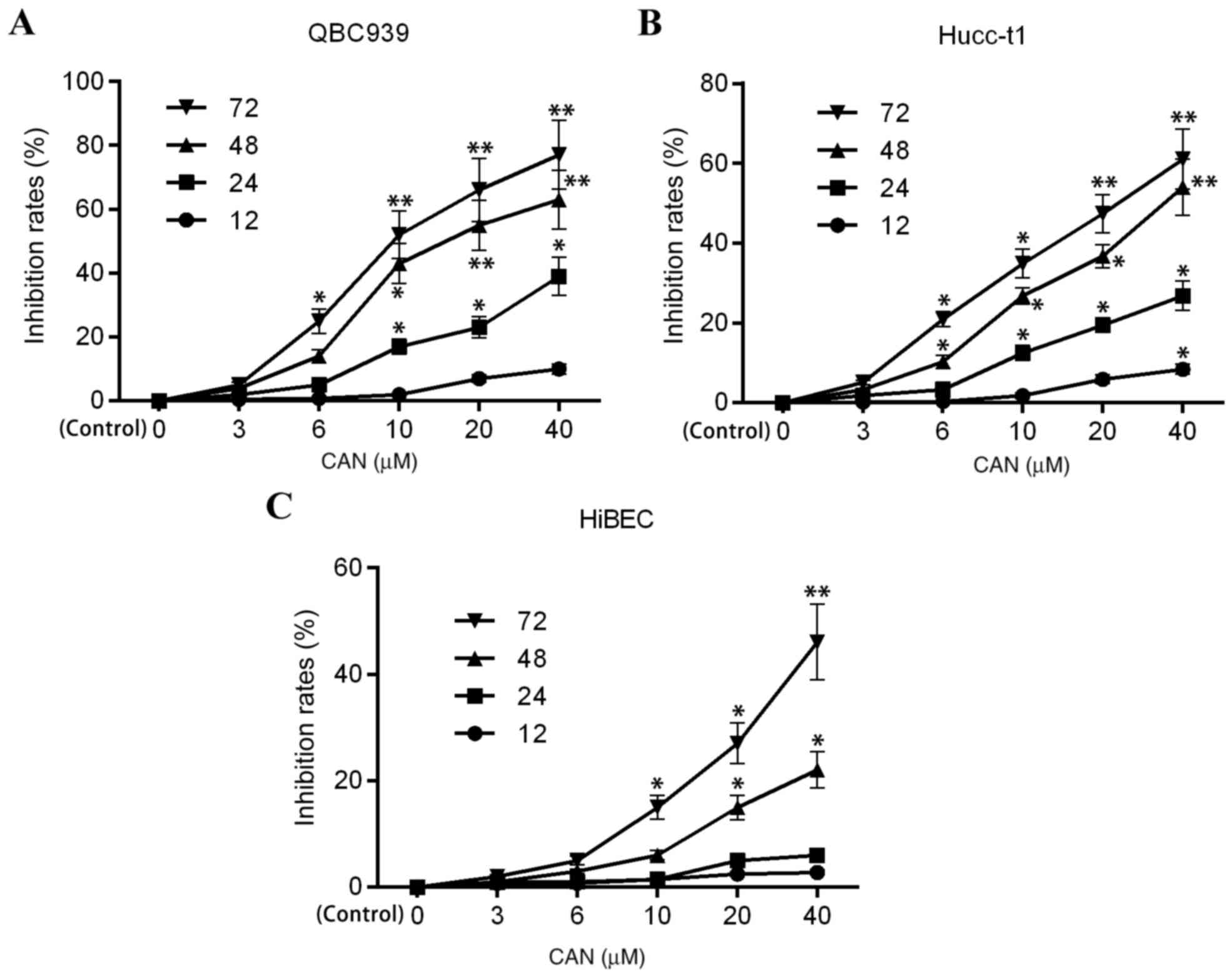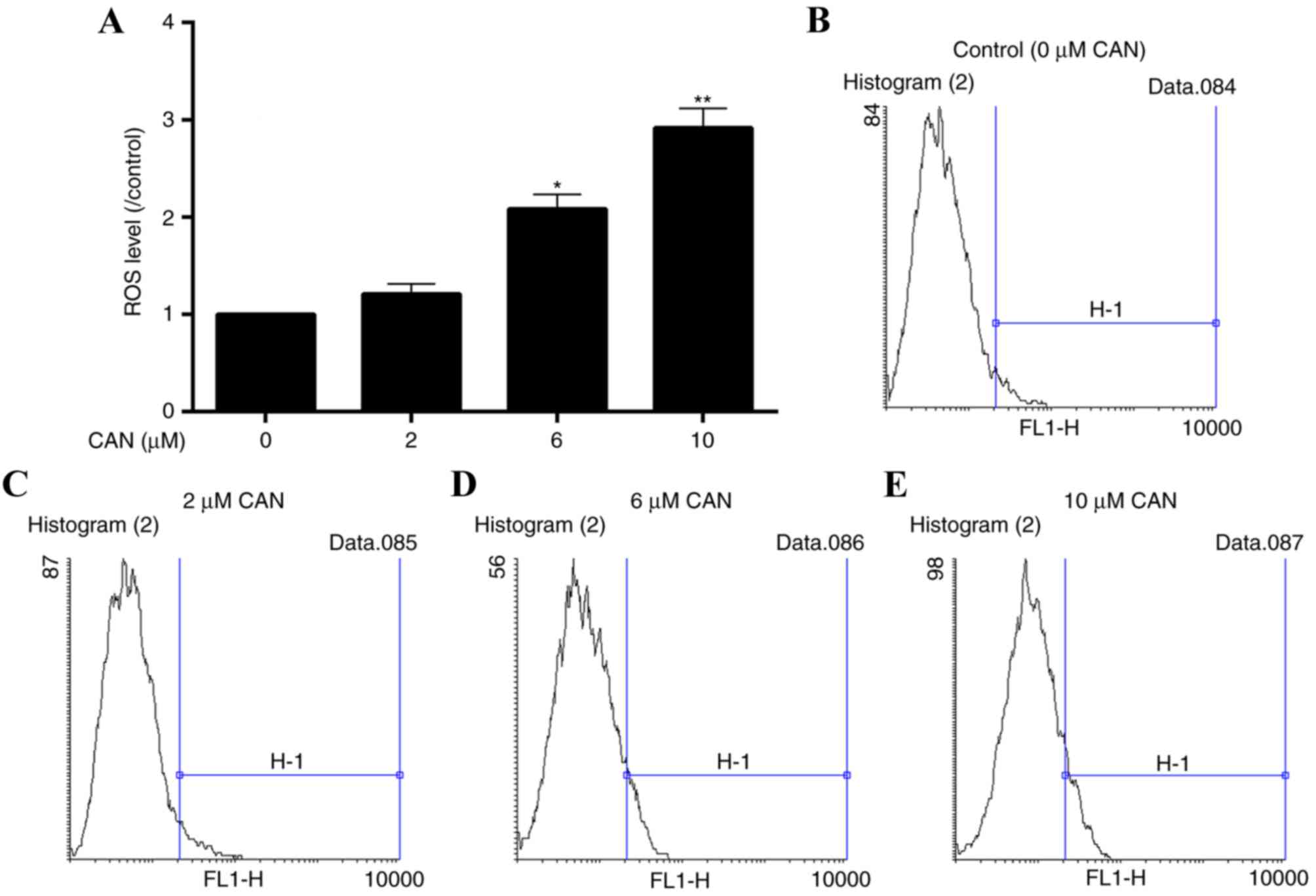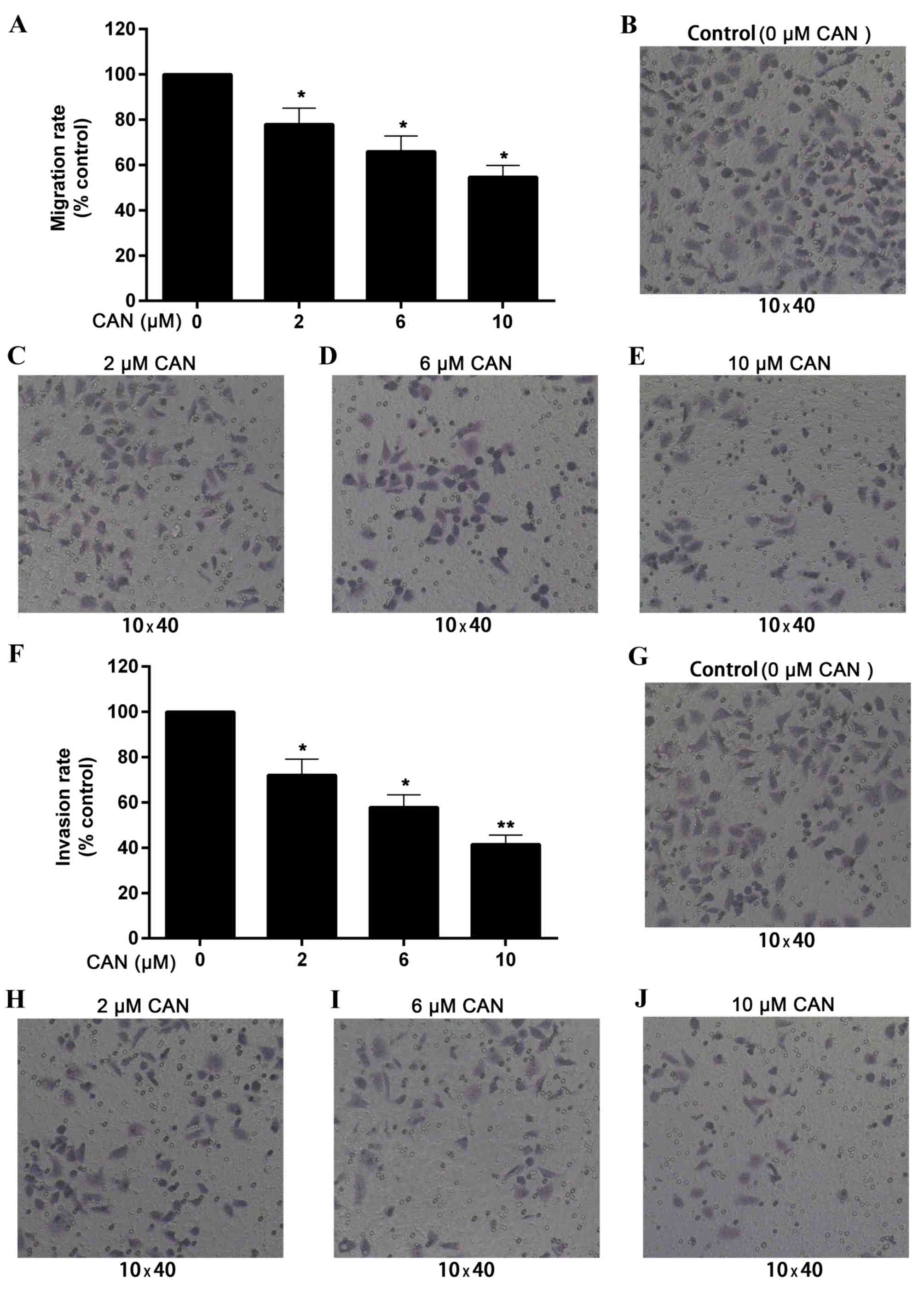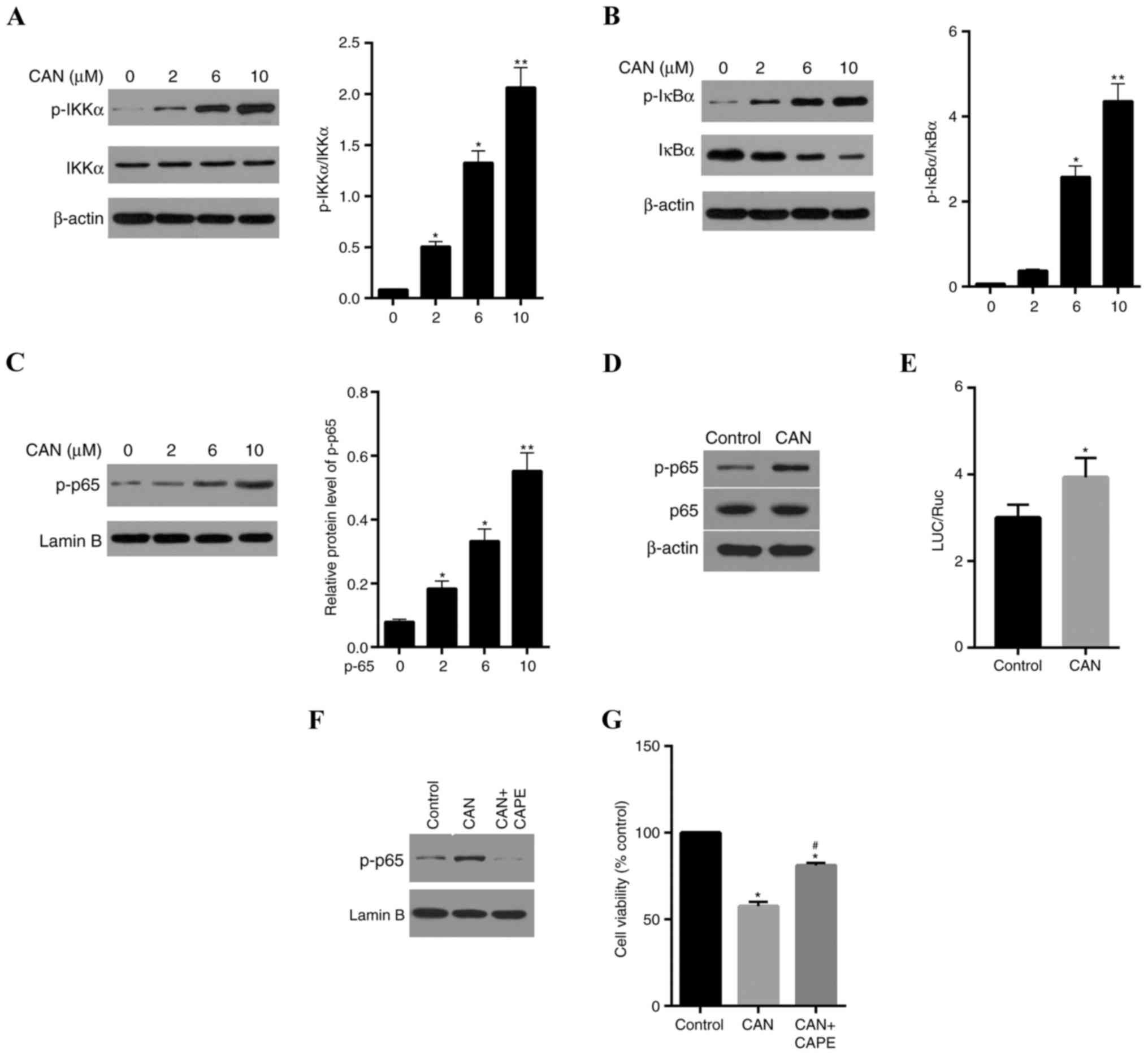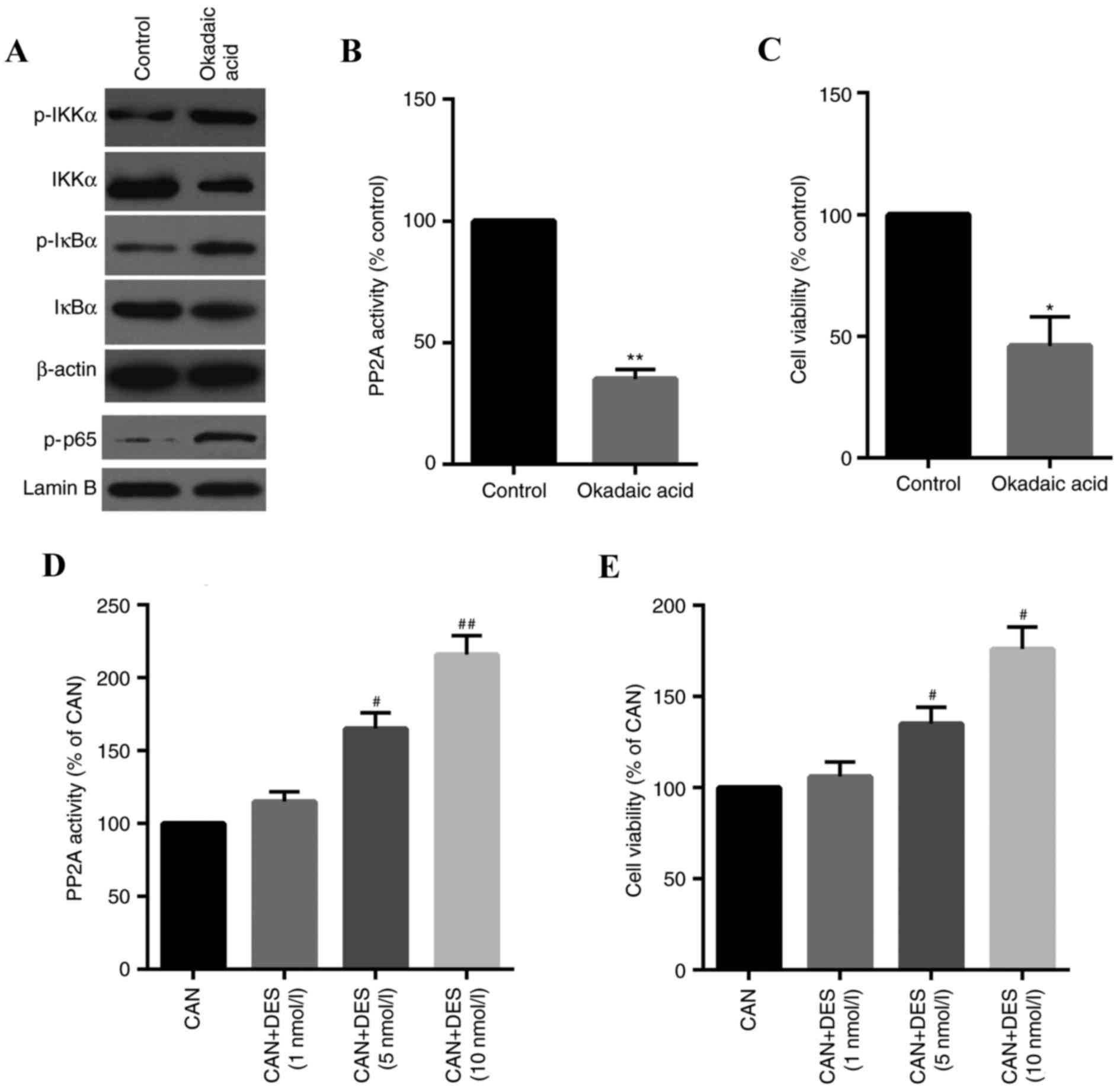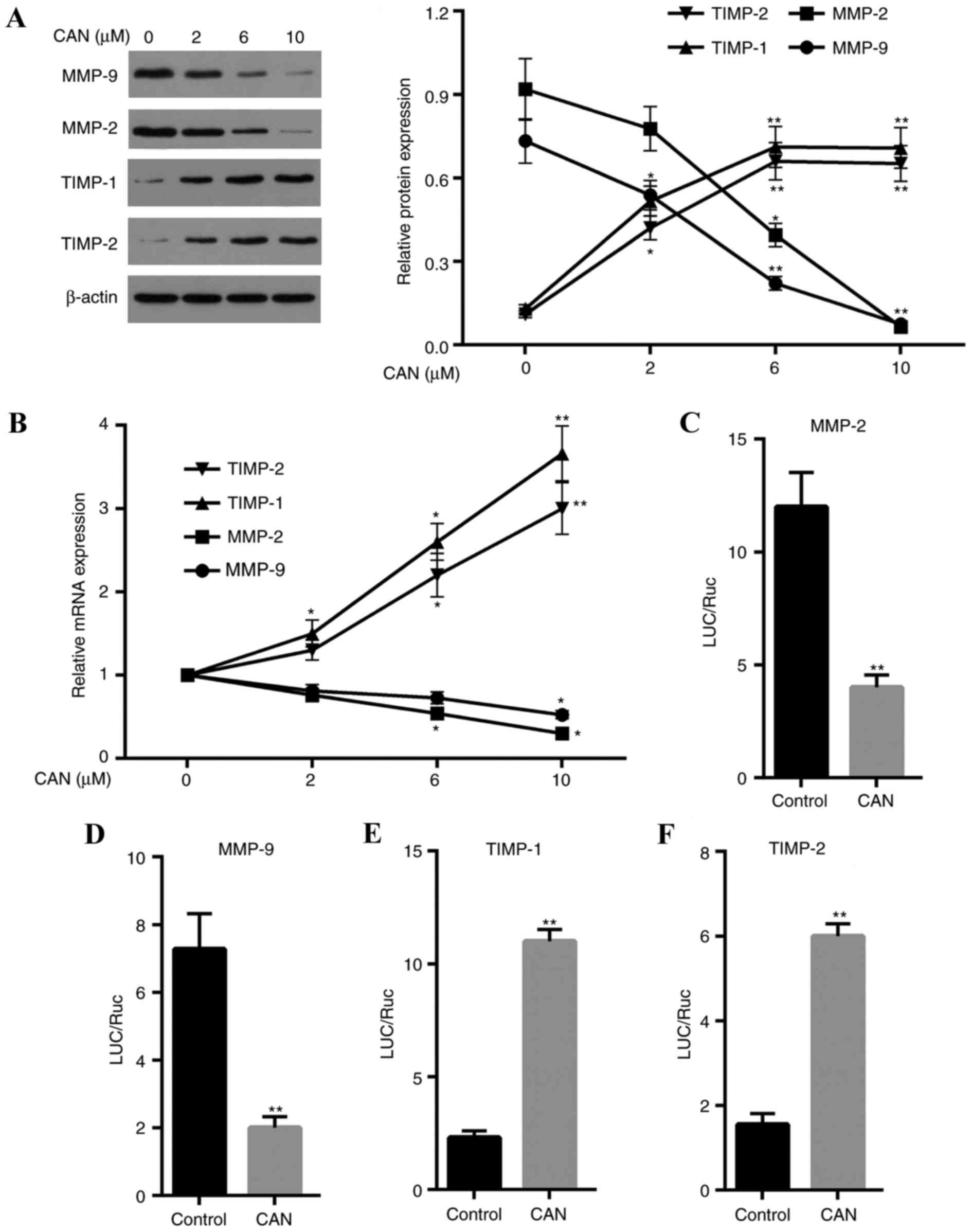|
1
|
Mittal PK, Moreno CC, Kalb B, Mittal A,
Camacho JC, Maddu K, Kitajima HD, Quigley BC, Kokabi N and Small
WC: Primary biliary tract malignancies: MRI spectrum and mimics
with histopathological correlation. Abdom Imaging. 40:1520–1557.
2015. View Article : Google Scholar : PubMed/NCBI
|
|
2
|
Yang W, Wang X, Zheng W, Li K, Liu H and
Sun Y: Genetic and epigenetic alterations are involved in the
regulation of TPM1 in cholangiocarcinoma. Int J Oncol. 50:3402017.
View Article : Google Scholar : PubMed/NCBI
|
|
3
|
Kim HJ, Kim CY, Hur YH, Koh YS, Kim JC,
Kim HJ and Cho CK: The prognostic factors for survival after
curative resection of distal cholangiocarcinoma: Perineural
invasion and lymphovascular invasion. Surgery Today. 44:1879–1886.
2014. View Article : Google Scholar : PubMed/NCBI
|
|
4
|
Horie Y, Akamizu H, Nishimura Y, Maeda N,
Kawasaki H, Kimura O, Hirooka Y, Hamazoe R, Kaibara N and Ohta Y:
Intrahepatic cholangiocarcinoma with a long-term survival of 12
years after surgical resection: Report of a case and review of the
literature. Hepatogastroenterology. 42:506–509. 1995.PubMed/NCBI
|
|
5
|
Yap AQ, Chen CL, Yong CC, Kuo FY, Wang SH,
Lin CC, Liu YW, Lin TL, Li WF, Millan CA and Wang CC:
Clinicopathological factors impact the survival outcome following
the resection of combined hepatocellular carcinoma and
cholangiocarcinoma. Surg Oncol. 22:55–60. 2013. View Article : Google Scholar : PubMed/NCBI
|
|
6
|
Sriputtha S, Khuntikeo N, Promthet S and
Kamsa-Ard S: Survival rate of intrahepatic cholangiocarcinoma
patients after surgical treatment in Thailand. Asian Pac J Cancer
Prev. 14:1107–1110. 2013. View Article : Google Scholar : PubMed/NCBI
|
|
7
|
Harnois DM, Que FG, Celli A, Larusso NF
and Gores GJ: Bcl-2 is overexpressed and alters the threshold for
apoptosis in a cholangiocarcinoma cell line. Hepatology.
26:884–890. 1997. View Article : Google Scholar : PubMed/NCBI
|
|
8
|
Subimerb C, Pinlaor S, Khuntikeo N,
Leelayuwat C, Morris A, McGrath MS and Wongkham S: Tissue invasive
macrophage density is correlated with prognosis in
cholangiocarcinoma. Mol Med Rep. 3:597–605. 2010.PubMed/NCBI
|
|
9
|
Boberg KM, Bergquist A, Mitchell S, Pares
A, Rosina F, Broomé U, Chapman R, Fausa O, Egeland T, Rocca G and
Schrumpf E: Cholangiocarcinoma in primary sclerosing cholangitis:
Risk factors and clinical presentation. Scand J Gastroenterol.
37:1205–1211. 2002. View Article : Google Scholar : PubMed/NCBI
|
|
10
|
Burak K, Angulo P, Pasha TM, Egan K, Petz
J and Lindor KD: Incidence and risk factors for cholangiocarcinoma
in primary sclerosing cholangitis. Am J Gastroenterol. 99:523–526.
2004. View Article : Google Scholar : PubMed/NCBI
|
|
11
|
Purandare NC, Patel II, Trevisan J, Bolger
N, Kelehan R, von Bünau G, Martin-Hirsch PL, Prendiville WJ and
Martin FL: Biospectroscopy insights into the multi-stage process of
cervical cancer development: Probing for spectral biomarkers in
cytology to distinguish grades. Analyst. 138:3909–3916. 2013.
View Article : Google Scholar : PubMed/NCBI
|
|
12
|
O'Reilly DA, Roberts JR, Cartmell MT,
Demaine AG and Kingsnorth AN: Heat shock factor-1 and nuclear
factor-kappaB are systemically activated in human acute
pancreatitis. JOP. 7:174–184. 2006.PubMed/NCBI
|
|
13
|
Orban Z, Mitsiades N, Burke TR Jr, Tsokos
M and Chrousos GP: Caffeic acid phenethyl ester induces leukocyte
apoptosis, modulates nuclear factor-kappa B and suppresses acute
inflammation. Neuroimmunomodulation. 7:99–105. 2000. View Article : Google Scholar : PubMed/NCBI
|
|
14
|
Liacini A, Sylvester J, Li WQ, Huang W,
Dehnade F, Ahmad M and Zafarullah M: Induction of matrix
metalloproteinase-13 gene expression by TNF-alpha is mediated by
MAP kinases, AP-1, and NF-kappaB transcription factors in articular
chondrocytes. Exp Cell Res. 288:208–217. 2003. View Article : Google Scholar : PubMed/NCBI
|
|
15
|
Da Silva-Ferrada E, Torres-Ramos M, Aillet
F, Campagna M, Matute C, Rivas C, Rodríguez MS and Lang V: Role of
monoubiquitylation on the control of IκBα degradation and NF-κB
activity. PLoS One. 6:e253972011. View Article : Google Scholar : PubMed/NCBI
|
|
16
|
Schultze SM, Hemmings BA and Tschopp O:
PI3K/AKT, MAPK and AMPK signalling: Protein kinases in glucose
homeostasis. Expert Rev Mol Med. 14:e12012. View Article : Google Scholar : PubMed/NCBI
|
|
17
|
Janssens V and Goris J: Protein
phosphatase 2A: A highly regulated family of serine/threonine
phosphatases implicated in cell growth and signaling. Biochem J.
353:417–439. 2001. View Article : Google Scholar : PubMed/NCBI
|
|
18
|
Li W, Xie L, Chen Z, Zhu Y, Sun Y, Miao Y,
Xu Z and Han X: Cantharidin, a potent and selective PP2A inhibitor,
induces an oxidative stress-independent growth inhibition of
pancreatic cancer cells through G2/M cell-cycle arrest and
apoptosis. Cancer Sci. 101:1226–1233. 2010. View Article : Google Scholar : PubMed/NCBI
|
|
19
|
Kadioglu O, Kermani NS, Kelter G,
Schumacher U, Fiebig HH, Greten HJ and Efferth T: Pharmacogenomics
of cantharidin in tumor cells. Biochem Pharmacol. 87:399–409. 2014.
View Article : Google Scholar : PubMed/NCBI
|
|
20
|
Martin WJ, Walton M and Harper J: Resident
macrophages initiating and driving inflammation in a monosodium
urate monohydrate crystal-induced murine peritoneal model of acute
gout. Arthritis Rheum. 60:281–289. 2009. View Article : Google Scholar : PubMed/NCBI
|
|
21
|
Reddy SB and Patel T: Current approaches
to the diagnosis and treatment of cholangiocarcinoma. Curr
Gastroenterol Rep. 8:30–37. 2006. View Article : Google Scholar : PubMed/NCBI
|
|
22
|
Shou LM, Zhang QY, Li W, Xie X, Chen K,
Lian L, Li ZY, Gong FR, Dai KS, Mao YX and Tao M: Cantharidin and
norcantharidin inhibit the ability of MCF-7 cells to adhere to
platelets via protein kinase C pathway-dependent; downregulation of
α2 integrin. Oncol Rep. 30:1059–1066. 2013. View Article : Google Scholar : PubMed/NCBI
|
|
23
|
Imig JD, Dimitropoulou C, Reddy DS, White
RE and Falck JR: Afferent arteriolar dilation to 11, 12-EET analogs
involves PP2A activity and Ca2+ -activated K + channels.
Microcirculation. 15:137–150. 2008. View Article : Google Scholar : PubMed/NCBI
|
|
24
|
Livak KJ and Schmittgen TD: Analysis of
relative gene expression data using real-time quantitative PCR and
the 2(-Delta Delta C(T)) method. Methods. 25:402–408. 2001.
View Article : Google Scholar : PubMed/NCBI
|
|
25
|
Tsuchiya Y, Osaki K, Kanamoto M, Nakao Y,
Takahashi E, Higuchi T and Kamata H: Distinct B subunits of PP2A
regulate the NF-κB signalling pathway through dephosphorylation of
IKKβ, IκBα and RelA. FEBS Lett. 591:4083–4094. 2017. View Article : Google Scholar : PubMed/NCBI
|
|
26
|
Rauh R, Kahl S, Boechzelt H, Bauer R,
Kaina B and Efferth T: Molecular biology of cantharidin in cancer
cells. Chin Med. 2:82007. View Article : Google Scholar : PubMed/NCBI
|
|
27
|
Kok SH, Chui CH, Lam WS, Chen J, Lau FY,
Cheng GY, Wong RS, Lai PP, Leung TW, Tang JC and Chan AS: Apoptotic
activity of a novel synthetic cantharidin analogue on hepatoma cell
lines. Int J Mol Med. 17:945–949. 2006.PubMed/NCBI
|
|
28
|
Sharma V, Anderson D and Dhawan A: Zinc
oxide nanoparticles induce oxidative DNA damage and ROS-triggered
mitochondria mediated apoptosis in human liver cells (HepG2).
Apoptosis. 17:852–870. 2012. View Article : Google Scholar : PubMed/NCBI
|
|
29
|
Zhang L, Li Y, Xing D and Gao C:
Characterization of mitochondrial dynamics and subcellular
localization of ROS reveal that HsfA2 alleviates oxidative damage
caused by heat stress in Arabidopsis. J Exp Bot. 60:2073–2091.
2009. View Article : Google Scholar : PubMed/NCBI
|
|
30
|
Deng G, Teng Y, Huang F, Nie W, Zhu L,
Huang W and Xu H: MicroRNA-101 inhibits the migration and invasion
of intrahepatic cholangiocarcinoma cells via direct suppression of
vascular endothelial growth factor-C. Mol Med Rep. 12:7079–7085.
2015. View Article : Google Scholar : PubMed/NCBI
|
|
31
|
He TP, Mo LE and Liang NC: Inhibitory
effect of cantharidin on invasion and metastasis of highly
metastatic ovarian carcinoma cell line HO-8910PM. Ai Zheng.
24:443–447. 2005.(In Chinese). PubMed/NCBI
|
|
32
|
Hsiao YP, Tsai CH, Wu PP, Hsu SC, Liu HC,
Huang YP, Yang JH and Chung JG: Cantharidin induces G2/M phase
arrest by inhibition of Cdc25c and Cyclin A and triggers apoptosis
through reactive oxygen species and the mitochondria-dependent
pathways of A375.S2 human melanoma cells. Int J Oncol.
45:2393–2402. 2014. View Article : Google Scholar : PubMed/NCBI
|
|
33
|
Martin L, Magnaudeix A, Wilson CM, Yardin
C and Terro F: The new indirubin derivative inhibitors of glycogen
synthase kinase-3, 6-BIDECO and 6-BIMYEO, prevent tau
phosphorylation and apoptosis induced by the inhibition of protein
phosphatase-2A by okadaic acid in cultured neurons. J Neurosci Res.
89:1802–1811. 2011. View Article : Google Scholar : PubMed/NCBI
|
|
34
|
Makarov SS: NF-kappa B in rheumatoid
arthritis: A pivotal regulator of inflammation, hyperplasia, and
tissue destruction. Arthritis Res. 3:200–206. 2001. View Article : Google Scholar : PubMed/NCBI
|
|
35
|
Mogi M, Ozeki N, Nakamura H and Togari A:
Dual roles for NF-kappaB activation in osteoblastic cells by serum
deprivation: Osteoblastic apoptosis and cell-cycle arrest. Bone.
35:507–516. 2004. View Article : Google Scholar : PubMed/NCBI
|
|
36
|
Jovanović M, Stefanoska I, Radojcić L and
Vićovac L: Interleukin-8 (CXCL8) stimulates trophoblast cell
migration and invasion by increasing levels of matrix
metalloproteinase (MMP)2 and MMP9 and integrins alpha5 and beta1.
Reproduction. 139:789–798. 2010. View Article : Google Scholar : PubMed/NCBI
|
|
37
|
Wu D, Pan H, Zhou Y, Zhou J, Fan Y and Qu
P: microRNA-133b downregulation and inhibition of cell
proliferation, migration and invasion by targeting matrix
metallopeptidase-9 in renal cell carcinoma. Mol Med Rep.
10:2491–2498. 2014. View Article : Google Scholar
|
|
38
|
Lo C, Lai TY, Yang JS, Yang JH, Ma YS,
Weng SW, Lin HY, Chen HY, Lin JG and Chung JG: Gallic acid inhibits
the migration and invasion of A375.S2 human melanoma cells through
the inhibition of matrix metalloproteinase-2 and Ras. Melanoma Res.
21:267–273. 2011. View Article : Google Scholar : PubMed/NCBI
|
|
39
|
Han YP, Tuan TL, Wu H, Hughes M and Garner
WL: TNF-alpha stimulates activation of pro-MMP2 in human skin
through NF-(kappa)B mediated induction of MT1-MMP. J Cell Sci.
114:131–139. 2001.PubMed/NCBI
|
|
40
|
Prakash M, Kale S, Ghosh I, Kundu GC and
Datta K: Hyaluronan-binding protein 1 (HABP1/p32/gC1qR) induces
melanoma cell migration and tumor growth by NF-kappa B dependent
MMP-2 activation through integrin α(v)β(3) interaction. Cell
Signal. 23:1563–1577. 2011. View Article : Google Scholar : PubMed/NCBI
|
|
41
|
Chen XJ, Wu MY, Li DH and You J: Apigenin
inhibits glioma cell growth through promoting microRNA-16 and
suppression of BCL-2 and nuclear factor-κB/MMP-9. Mol Med Rep.
14:2352–2358. 2016. View Article : Google Scholar : PubMed/NCBI
|
|
42
|
Karadimas SK, Klironomos G, Papachristou
DJ, Papanikolaou S, Papadaki E and Gatzounis G: Immunohistochemical
Profile of NF-κB/p50, NF-κB/p65, MMP-9, MMP-2, and u-PA in
experimental cervical spondylotic myelopathy. Spine (Phila Pa
1976). 38:4–10. 2013. View Article : Google Scholar : PubMed/NCBI
|
|
43
|
Liu X, Lin R, Zhao B, Guan R, Li T and Jin
R: Correlation between oxidative stress and the NF-κB signaling
pathway in the pulmonary tissues of obese asthmatic mice. Mol Med
Rep. 13:1127–1134. 2016. View Article : Google Scholar : PubMed/NCBI
|
|
44
|
Wu Y and Zhou BP:
TNF-alpha/NF-kappaB/Snail pathway in cancer cell migration and
invasion. Br J Cancer. 102:639–644. 2010. View Article : Google Scholar : PubMed/NCBI
|
|
45
|
Bourboulia D and Stetler-Stevenson WG:
Matrix metalloproteinases (MMPs) and tissue inhibitors of
metalloproteinases (TIMPs): Positive and negative regulators in
tumor cell adhesion. Semin Cancer Biol. 20:161–168. 2010.
View Article : Google Scholar : PubMed/NCBI
|
|
46
|
Bramhall SR, Neoptolemos JP, Stamp GW and
Lemoine NR: Imbalance of expression of matrix metalloproteinases
(MMPs) and tissue inhibitors of the matrix metalloproteinases
(TIMPs) in human pancreatic carcinoma. J Pathol. 182:347–355. 1997.
View Article : Google Scholar : PubMed/NCBI
|
|
47
|
Nagase H and Brew K: Designing TIMP
(tissue inhibitor of metalloproteinases) variants that are
selective metalloproteinase inhibitors. Biochem Soc Symp.
70:201–212. 2003. View Article : Google Scholar
|















